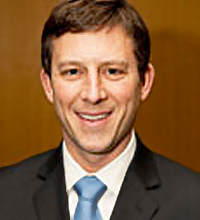From PhD to Practice: Reflections on transforming from an owner to an academic to a practitioner
Since the theme of The Practitioner this month is one of transformation, I would like to share the lessons learned from my transformation from family business owner to doctoral student to professional consultant. My path from PhD to practice has taught me three primary and valuable lessons that now inform my work with business families: the power of intent, the importance of applying diverse skills, and the vitality of interpersonal capabilities.
I am an owner of two different family businesses; one that my father started, and one that I married into. My engagement in these businesses as an owner led to my desire to work as a family business consultant. FFI highlights that most professionals come to work with family businesses as the result of an existing career in which they encounter business families and then increase their practice in this area. I set out to intentionally build a career as a family business consultant through a research degree and my own experience as a family-business owner. I do not have a traditional business background, and the people that I saw doing the work I wanted to do had PhD’s, so why couldn’t I? It wasn’t that hard – was it?
To give a little perspective on the highly variable thoughts of other professionals on earning a PhD, here are a few of the comments that people shared with me:
- “You know that having a PhD doesn’t make you a consultant.”
- “Some people will see you as an egghead who can’t relate to them.”
- “I spend a lot of time talking people out of doing a PhD.”
Despite these challenging comments, I knew that I wanted to earn my doctorate, and so I committed 100% to my goal. I soon encountered the reality that earning a research-based degree is traditionally oriented towards a career in academia. But I knew all along I wanted to be a practitioner, so how did I make the transition from PhD to successful practitioner? Through the devoted intention to ensure that my research was something that I could build a career on, leveraging the secondary skills I learned, and in building my interpersonal capabilities, not just my theoretical knowledge. These lessons have greatly helped my process of transformation from PhD to practitioner, and I want to share these perspectives for both potential doctoral students and the greater FFI family:
- Have a clear plan and intention for how you want to apply your dissertation research.
There is a distinct importance in knowing what you are going to do with your dissertation. The original research involved in a dissertation is an immense undertaking that will consume your life for at least a year. But the value of this research can extend far beyond the project itself if you want it to. I always knew I wanted to be a practitioner, so I crafted my dissertation accordingly. I did a qualitative project in which I interviewed family members to learn about their experiences. Once I realized I had a good idea, I knew that I wanted to write a book about my subject matter with the primary audience being family members. With this continuous goal in mind, I was able to ensure that my dissertation was something that I could turn into other outputs that would make a lasting contribution to families and professionals. This point speaks to the power and importance of intention and vision and applies to people in other pursuits as well, not just doctoral students.
- Earning a PhD requires many skills that you can leverage throughout your career.
There are significant secondary skills learned in the process of earning a doctorate. I only realized many of these after completion, but now I think that these skills may be some of the most valuable aspects of what I gained from my degree. Earning a PhD is a demanding undertaking that requires perseverance and commitment. I also learned interviewing skills, and the ability to synthesize information. I learned the vital skills of project management, and the importance of advance planning and forethought. I learned how to manage disconfirming information, and appreciate different views. I had to be able to integrate feedback and to work constructively with challenges. I have found that all of these skills were honed in the process of earning my PhD and that they all are vital in my work as a consultant. I apply these skills in most every consulting engagement I am in; they help me manage the magnitude and complexity of working with large business families. I only recognized the development of many of these skills after the fact, and if I had been more aware of them throughout my doctoral process, I may have been able to build them even more intentionally.
- Having a PhD may get you in the door, but after that the ability to connect with people is paramount.
Having earned a PhD have opened many opportunities for me that would not have existed before, but my relational and communication skills are what allow me to step through the door to do my work with clients. Clients don’t care about my PhD nearly as much as my ability to have a strong interpersonal and social connection with them. I have had to work to temper my academic writing and language so that clients can hear and relate to my knowledge, experience, and perspective. I have ultimately found that the strong combination of credentials and interpersonal capabilities is what has helped me transform from doctoral student to professional consultant.
Earning my PhD has been hugely helpful for building my career as a family business consultant, but it is really only one step in a process of ongoing growth and development. The challenge of earning this degree has helped me manage the transformation to practitioner by giving me a diverse skill set and the power to leverage all my hard work. Now that I am working with families, I recognize that my learning has only just begun. Despite everything that I learned from my doctorate, my clients are the most valuable teachers that I have, and I am regularly humbled and awed by their lessons. Some of these lessons were apparent while I was earning my degree, but some have only become visible after I graduated and began my career. I have also realized that we need not have such a strong demarcation between academic and practitioner. There are many FFI members and others who have helped forward the “pracademic” model in which practice informs further research projects, and that research drives effective models of practice.
All of us manage transformations in our lives in many ways. I would like to think that some of the lessons I have learned can be applied to many people who work with family businesses and for those aspiring to:
- The power of having a strong intention to leverage your prior work (not limited to dissertation research!);
- The importance of leveraging the secondary skills that you have learned throughout your personal and professional life; and
- The vitality of having strong interpersonal skills with which to connect with clients.
Working with family businesses is complex, challenging, and deeply rewarding; the transformation from PhD to practice has been as well.
About the contributor
 Joshua Nacht, CFBA, is a consultant with The Family Business Consulting Group and serves on the board of directors of Bird Technologies as a married-in, third-generation family member. He is also a second-generation owner of a real estate development and management company. Joshua is the recipient of the FFI 2016 Best Dissertation Award and the 2013 Crystal & Company GEN Scholarship. He can be reached at [email protected].
Joshua Nacht, CFBA, is a consultant with The Family Business Consulting Group and serves on the board of directors of Bird Technologies as a married-in, third-generation family member. He is also a second-generation owner of a real estate development and management company. Joshua is the recipient of the FFI 2016 Best Dissertation Award and the 2013 Crystal & Company GEN Scholarship. He can be reached at [email protected].




